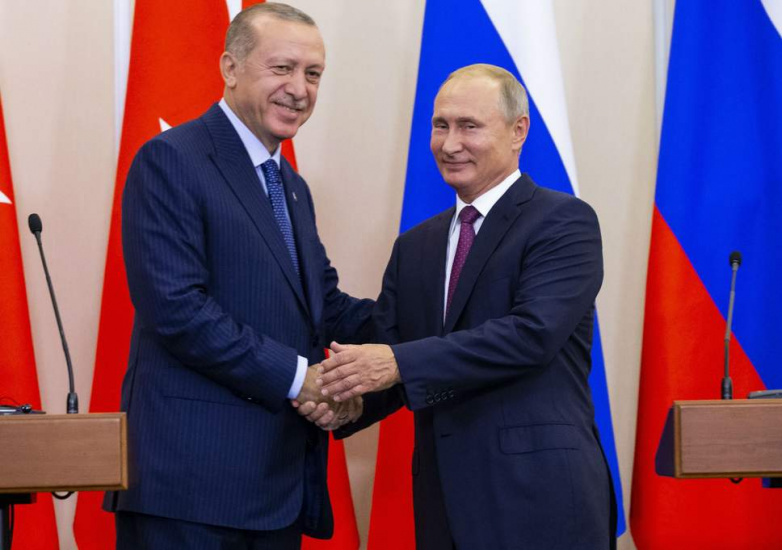Idlib and the Iran-Russia Rivalry in Syria

The exclusion of Iran from a Russia-Turkey meeting on Syria's Idlib shows Tehran and Moscow are still not on the same page when it comes to the war-torn country, says a former Iranian ambassador to Russia.
"Part of Iran-Russia relations is cosmetic, leading us to be surprised at times - for instance, why did Russia go to Turkey for the recent meeting on Idlib," Nematollah Izadi, the first Iranian ambassador to Russia after the collapse of the Soviet Union, said.
"If you look more carefully at the trilateral Putin, Erdogan, Rouhani summit in Tehran, you will see that it was obvious it would go nowhere, because Russia would not give any concessions regarding Syria's Idlib in Tehran," he added.
On 17 September, Turkish President Recep Tayyip Erdogan met with his Russian counterpart, Vladimir Putin, in the Black Sea city of Sochi.
The two leaders agreed on a roadmap to clear Idlib, the last rebel-held province, of the former al-Qaeda affiliate Hayat Tahrir al-Sham (HTS) without the need for a military intervention.
This marked a U-turn from when Putin and Erdogan met in Tehran with Iranian President Hassan Rouhani on 7 September. There, Erdogan's proposal for a ceasefire was rejected by Putin.
"Russia excluded a player (Iran) and held talks with Turkey and may do the same with Turkey and reach an agreement with the West in the future. Therefore, we still don't have a perspective of Iran-Russia relations, which may be due to everydayness in bilateral relations," Izadi said.
The former diplomat maintains that a lack of principled ties between Iran and Russia can be attributed to the "course of events".
Izadi said "Russia's relations with Iran become closer whenever it needs us, something that is true about Iran as well. Therefore, we should contain our expectations from relations (with Russia)."
"These relations are not equal and the two sides' goals from such relations are different as well. At times, Russia's position toward Iran is ideological while Iran's ideological approach toward Russia has been stronger at other times," he said.
Izadi believes that Iran-Russia relations should be devised based on good neighborliness principles in line with containing the two countries' needs and building mutual trust.
Explaining Russia's rejection of a UN Security Council resolution on Yemen, which was in agreement with Iran's policies, Izadi said, "If (Russia's) interests dictate, the country will take such decisions."
He also pointed to the recent decision by Moscow to offset the lack of Iranian oil in the market, saying "Russian officials say they will offset the loss of Iranian oil on the global market, reasoning that they want to contain Saudi Arabia's role. But, the result of this (policy) for us is the same – losing our oil markets."
Izadi said Iran does not expect Russia to come down on the side of Iran for all issues, but what it does expect from the country is to observe the "principles of good neighborliness".
"The scope of good neighborliness calls for cooperation in economy, and fighting against terrorism in Afghanistan, Caucasia, and even Iraq," he said.
"But in Syria, our cooperation is not along the same lines. Russia considers itself the landlord. They have held a presence there from the Soviet Union era, although after the collapse of the Soviet Union, this presence has become weaker. However, Iran's effective presence in Syria is after the 1979 Islamic Revolution. Therefore, in this regard, we have an unwritten rivalry with Russia."
Source: Persia Digest

